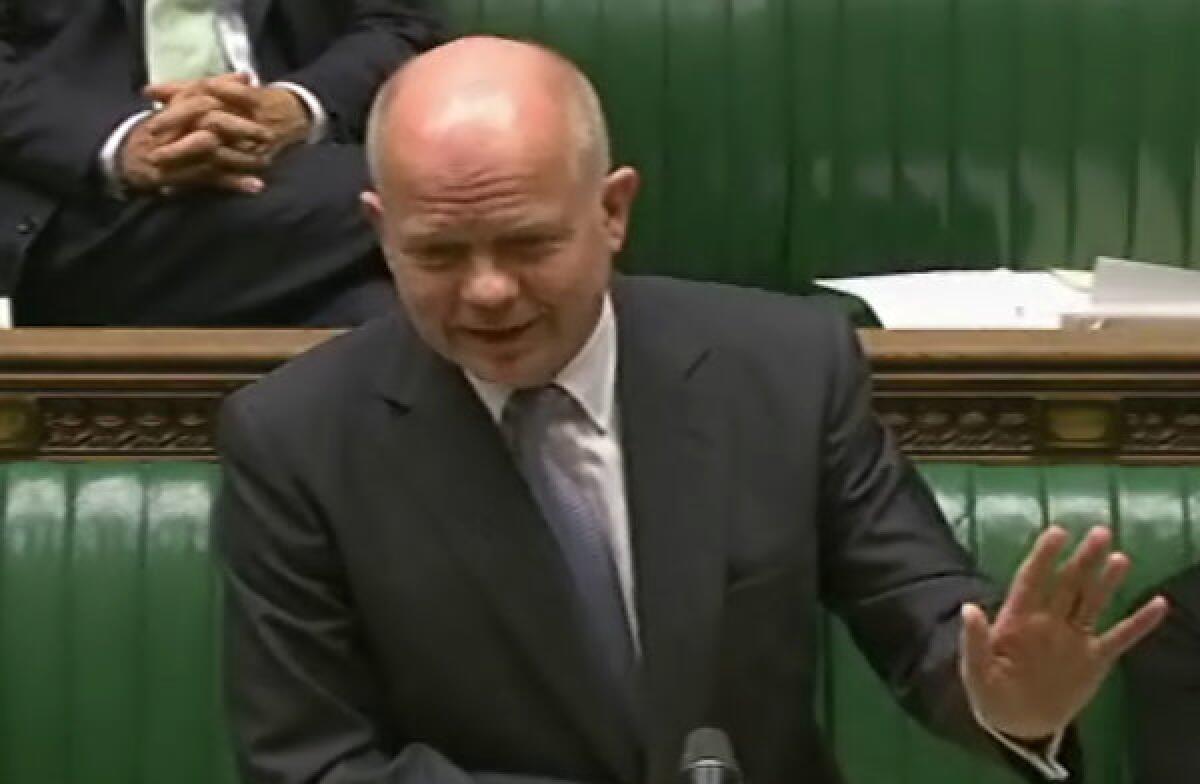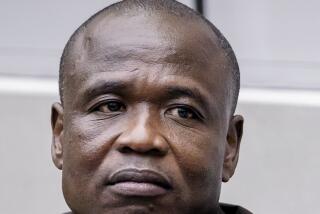Britain to pay compensation to Kenyans for colonial past

LONDON -- The British government settled a long fought legal battle over its colonial past Thursday with the announcement that it will pay compensation to Kenyans harmed by the suppression of the militant Mau Mau movement from 1952 to 1963.
More than 5,000 Kenyans who have sought redress since 2009 for abuse and tortured inflicted by British forces suppressed the armed revolt were told they will be awarded more than $30 million among them.
Speaking in Parliament, Foreign Secretary William Hague recalled the brutality of the period when âmany thousands of Mau Mau members were killed, while the Mau Mau themselves were responsible for the deaths of more than 2,000 people, including 200 casualties among the British regiments and police.â
Describing British measures of repression, he said: âEmergency regulations were introduced: political organizations were banned ... provisions for detention without trial were enacted. The colonial authorities made unprecedented use of capital punishment and sanctioned harsh prison so-called ârehabilitationâ regimes.â
Hague outlined the escalation of violence that led to âthe infamous events at Hola camp,â a labor camp in which 11 Mau Mau suspects were beaten to death by their British captors in 1959.
While the government recognized âKenyans were subject to torture and other forms of ill treatment at the hands of the colonial administration,â it did not believe that Thursdayâs settlement âestablishes a precedent in relation to any other former British colonial administration,â he said, but it formed part of âa process of reconciliationâ as Kenya approaches the 50th anniversary of its independence in December.
Martyn Day of Leigh Day law firm, who represented the 5,200 victims, welcomed the decision.
âI take my hat off to Mr. Hague for having the courage to make todayâs statement and to announce this settlement with our clients,â he said in a statement after the announcement. âAlbeit that it comes after a four-year legal battle and two High Courts defeats for the government, it takes courage to publicly acknowledge for the first time the terrible nature of Britainâs past in Kenya.â
The violent actions that had gone unpunished for decades, he continued, âincluded castration, rape and repeated violence of the worst kind. Although they occurred many years ago, the physical and mental scars remain.â
âMany of those who were detained and tortured were never tried and had little or nothing to do with the Mau Mau insurgency,â he said of Kenyans held by British forces.
The revolt finally ended in 1963 when Kenya gained its independence, Jomo Kenyatta was elected as president and his country became a member of the British Commonwealth.
ALSO:
No Michelle at the summit? Chinese see a snub
Clashes erupt in Syria near Israeli-occupied Golan Heights
Indian police arrest 3 men in alleged rape of American woman
More to Read
Sign up for Essential California
The most important California stories and recommendations in your inbox every morning.
You may occasionally receive promotional content from the Los Angeles Times.










